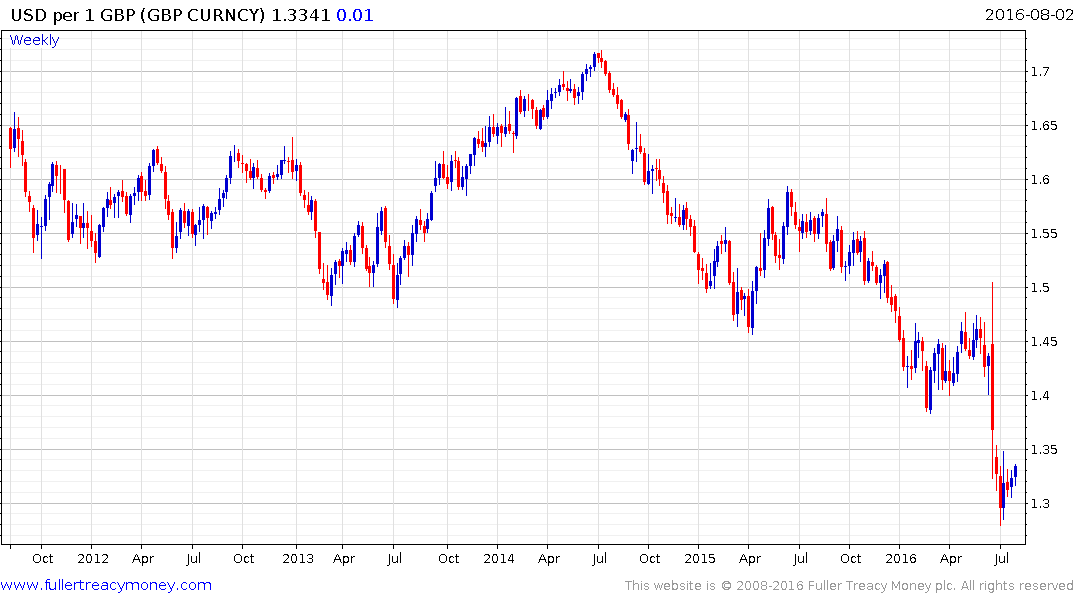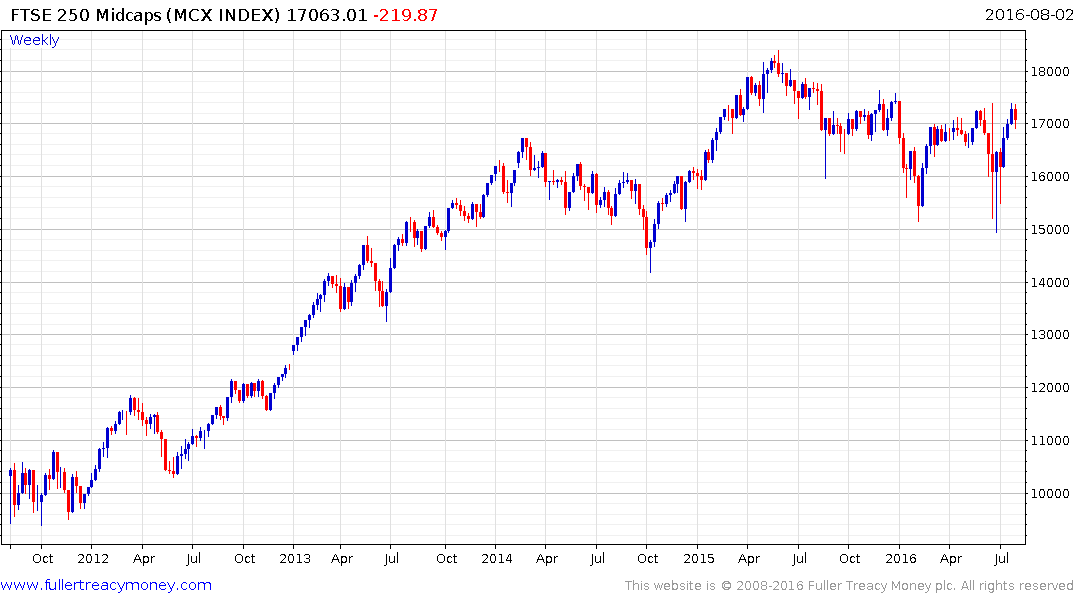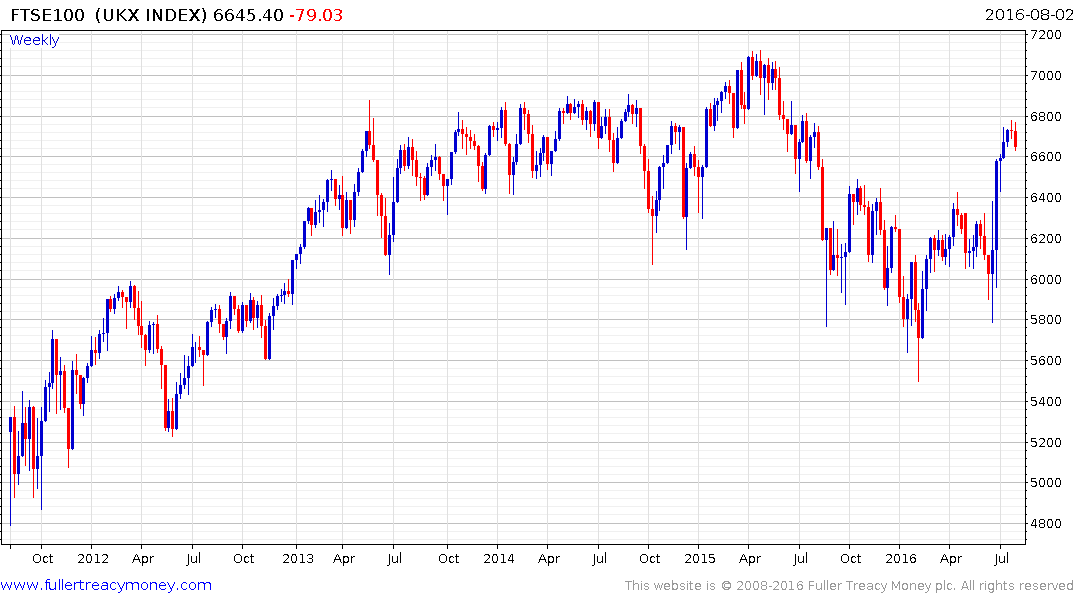Carney Quantifies Gloom With BOE Stimulus Debate at Crunch Point
This article by Scott Hamilton for Bloomberg may be of interest to subscribers. Here is a section:
The Brexit result is rippling out into the economy, with potentially contrasting effects on demand, supply and sterling, which has dropped about 9 percent on a trade-weighted basis since the referendum. Almost every economist in a Bloomberg survey sees the MPC cutting its growth forecasts through 2018, while raising its inflation and unemployment projections.
If officials are anywhere as pessimistic as economists, they could slash their GDP outlook by the most since the financial crisis, Clarke said. In July, economists lowered their own forecasts, with the median in a Bloomberg survey falling to just 0.6 percent from 2.1 percent before the June 23 referendum.
In May, the BOE expected growth next year of 2.3 percent, which would have been the fastest since 2014.
While the initial starting point for the MPC’s forecast will be the stronger-than-expected second quarter that data also showed a definite loss of momentum over the three months.
The backdrop has worsened since the Brexit vote, with Markit saying its industry surveys in July suggest a 0.4 percent contraction this quarter. A final reading for services, which account for three quarters of the economy, will be published Wednesday
According to Carney, the MPC estimated in May that the pickup in uncertainty it had seen up until then would lower GDP by around 0.7 percent after a year. But that assumption was based on “Remain” winning the referendum and uncertainty fading away, meaning the hit could be much larger now. As well as outstanding questions about the U.K.’s new trade relationship with the EU, the new government has yet to outline its fiscal plans.
While some, including Goldman Sachs Group Inc., forecast a short-lived recession, others are less pessimistic. Bloomberg Intelligence U.K. economist Dan Hanson says the BOE will not go this far in its central forecast, though it will raise the possibility.
“We suspect that as yet, there is insufficient information to be too definitive,” said Philip Shaw, an economist at Investec Securities in London. “The Inflation Report will highlight a risk of a recession, but not adopt it as its baseline scenario.”
Mark Carney can hardly be blamed for wanting a quieter life when he made his statements warning that Brexit would result in a UK recession. He and the monetary policy committee are now faced with a difficult juggling act as a result of the population’s decision to in fact vote for change.
The Bank of England’s base rate has been set at 0.5% since March 2009 and is likely to be cut by an additional 25 basis points this week. While at the Bank of Canada, Carney was notable for taking bold decisions ahead of the financial crisis so there is the possibility that he will take the initiative and ease more than might otherwise be needed in order to boost growth prospects as the UK heads into a two-year negotiation with the EU.

The Pound has priced in a lot of bad news already and economic statistics giving a fuller picture of the effects of Brexit will take months to give a factual basis for market prognostications. The result is that this is still a more emotionally driven market than usual. The most likely scenario is for ranging until investors have a clearer idea of what the net effect on the economy is likely to be. However with so much pessimism already having been expressed anything but the worst case scenario is likely to result in a steadier environment overall for the Pound while a sustained move above the trend mean will eventually be required to signal a return to demand dominance beyond the short term.

The FTSE-250 Index has paused in the region of the 17,500 highs and closed well off its low today. A sustained move to new recovery highs would signal a return to demand dominance beyond short-term steadying.

Meanwhile the FTSE-100, which has a much greater international weighting, is susceptible to mean reversion if the Pound continues to firm.


